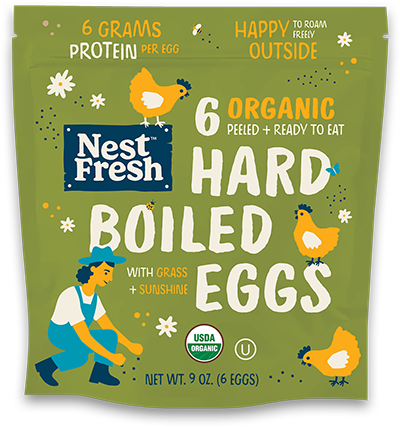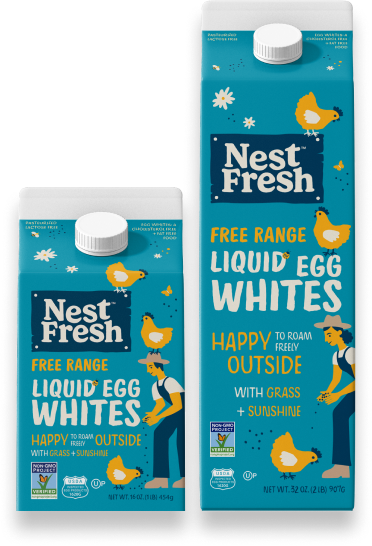These days many people strive to eat healthily and learn the facts about the food they put in their bodies. Everyone wants to lead a happy and healthy life, but with so many options available it can be hard to know where to start. Eggs are one of the best protein sources to fuel your body and they come in many different varieties including free range, organic and nutrient enhanced, just to name a few. The Colorado Egg Producers (CEP) Association explains common egg claims to help you make decisions when looking at different cartons in the egg shelf.
• Antibiotic-free: All eggs produced in the U.S., even if not specified on the egg carton, are antibiotic-free.
• Brown eggs: Eggs that are laid by red-brown feathered breeds of hens. The nutrient content of brown eggs is the same as white eggs. Nutrient content has nothing to do with shell color.
• Cage-free/free-roaming: Eggs laid by hens that roam in a barn and have unlimited access to fresh food and water. Cage-free systems vary and include barn-raised and free-range hens, both of which have shelter that helps protect against predators. Both types are produced under common handling and care practices, which provide floor space, nest space and perches.
• Free-range eggs: Eggs produced by hens that have access to the outdoors in accordance with weather, environment or state laws. The birds have continuous access to fresh food and water and may forage for wild plants and insects. They are also provided floor space, nesting space, and perches.
• Hormone-free: All eggs produced in the U.S., even if not specified on the egg carton, are free of added hormones.
• Natural: USDA identifies all shell eggs as natural.
• Nutrient-enhanced eggs: Eggs that are produced by hens fed a special diet that may include things like flax seed, marine algae or fish oils. These special diets result in eggs that have higher levels of certain nutrients.
• Organic eggs: Eggs that are laid by cage-free, free-roaming hens that have access to the outdoors and are raised on certified organic feed. The hens’ feed is grown without most synthetic pesticides, fungicides, herbicides or fertilizers, and 100 percent of the agricultural ingredients must be certified organic. Antibiotics and growth hormones are prohibited.
• Pasteurized eggs: Eggs heated to temperatures just below the coagulation point to destroy pathogens. These eggs are recommended for recipes that call for raw eggs or for people susceptible to illness who prefer runny eggs. Pasteurized eggs must be kept refrigerated.
• Pastured eggs: Pastured eggs originate from hens to free to roam and forage on a maintained pasture area. The vegetarian diet may be supplemented with grain. The hens are moved to various pasture areas to maintain vegetation.
• Vegetarian fed eggs: Produced by hens fed a vegetarian diet that is free of animal byproducts.
No matter how they’re produced, all eggs are rich in nutrients and vitamins. In fact, a single egg contains almost all of the essential protein, minerals and vitamins the human body needs. In addition to being a great source of protein, eggs also contain high levels of choline, which aids in brain function, lutein, which is a caroteniod that helps eyesight and Vitamin D, which helps with bone growth and development and is great for your immune system.
To learn more facts and information about eggs, find CEP on Facebook, Twitter and Pinterest or visit www.coloradoeggproducers.com.





